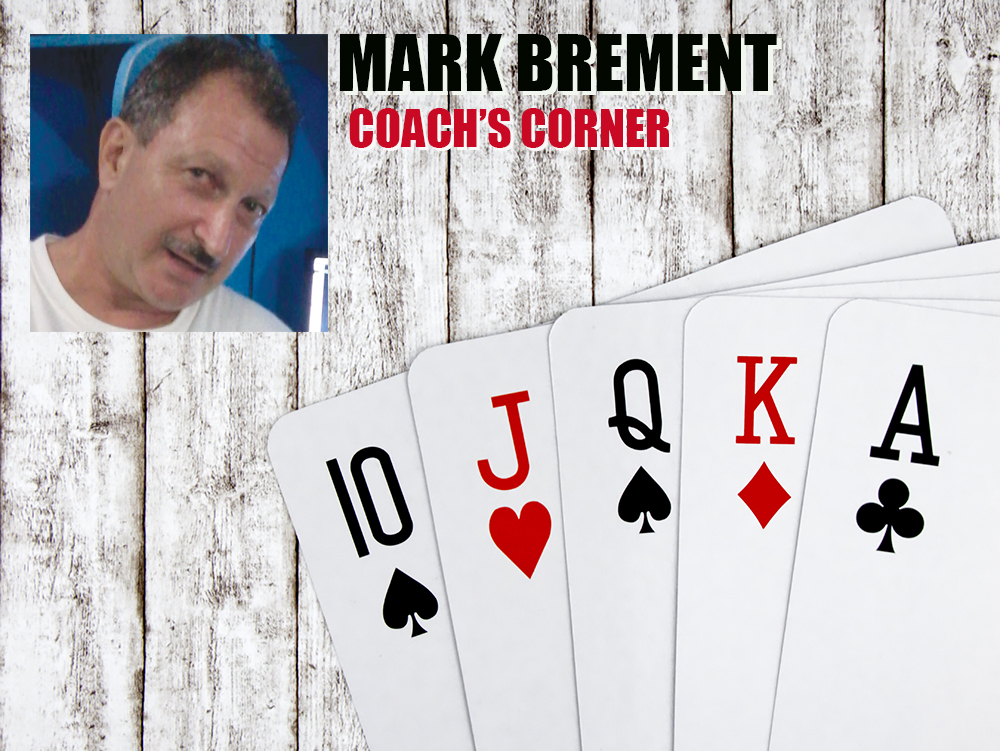My past three columns have covered poker intangibles, which are the off-the-table habits of a player that contribute to bigger poker earnings. Many players, and understandably so, simply wish to play cards. “Shut up and deal” is one of my mantras from way back before I decided to take on the game at a higher level. Let’s examine a few concepts that will take our game to the next level:
DECISIONS: This game is not about how many pots you scoop. Poker is a net-sum game. Poker is a game of decisions, constant decisions. The player’s brain should be firing on all cylinders throughout the session.
Keeping one’s brain active during hands whereby the player is not in the hand is a habit that pays great dividends. As each hour passes, you might not feel fatigue, but your brain starts to slow little by little.
Just like long-distance runners, some of the greatest players have an ability to stay sharp for longer periods of time. The money follows strong decisions. Grasp this concept. This bears repeating. Poker is a game of decisions.
FOOD: In my last column, I covered the importance of sleep and emphasized that studies bear out that pro athletes are more likely to choke or commit blunders at certain times of the day. In poker, one ill-timed bluff, a misread of the board or any mistake that can be categorized as a blunder can set a player behind a month.
Understand that poker is, and I repeat, a game of decisions. We understand we’re in a brain game. It should be obvious. Pay attention to your poker diet. Eating a heavy meal will make you sleepy; and you will not be sharp. Eating at the table will distract you.
Come to the table with a plan. Execute. Being rested and well-fed cannot be underestimated.
PSYCHOLOGICAL EDGE: Much of our edge comes from making better decisions than opponents and can be looked at from the math side. We got our money in with a positive-expected value. While no two hands will play exactly the same, the same situations will reoccur. We’ll end up a winner if these recurring situations have a positive EV.
The psychological edge comes from the emotional intangibles of the game and must not be overlooked. In higher stakes, players will offer strong competition. How we manage our bodies and our brain (sleep, diet, exercise) often dictates who will be the long-term winners, who will avoid tilt and who will stay focused and disciplined.
Poker is a net-sum game. The player who makes the best decisions will reap the rewards.
— Mark Brement has spent 15 years teaching and coaching all facets of poker, including at Pima CC. Email him at brementmark@gmail.com.



